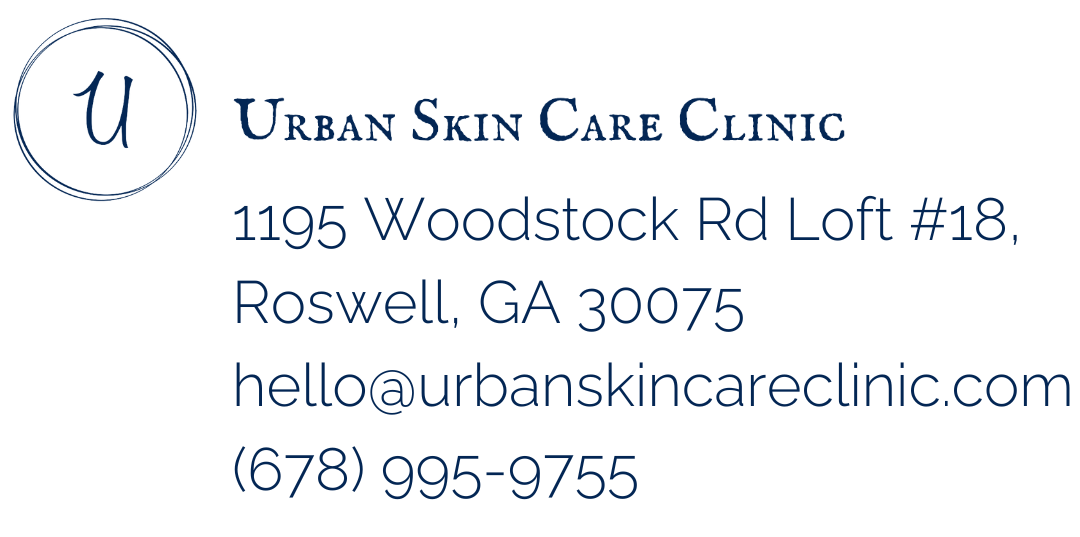The connection between mental and skin health
Your mind and skin are connected. Our skin has a funny way of showing the world what we're feeling. We've all been caught blushing during times of embarrassment or turning pale when scared. But have you noticed how your skin reacts to your mental health?
How do mental health conditions affect the skin?
Let's uncover the connection between mental health and skin health and a few ideas to create a more balanced lifestyle. Do you ever wonder if stress affects the skin? Stress is a natural part of life. We have work stress, school stress, social stress, and so much more. We've all been there. It's common for the weight of these stressors to affect our mood, attitude and yes, even our skin.
Our adrenal glands produce and release a hormone known as cortisol during times of stress. When those levels are elevated for an extended period, they can take a toll on our bodies and skin. The release of cortisol is often associated with heightened heart rate and blood pressure, which can worsen the symptoms of sensitive skin conditions like psoriasis, eczema and rosacea. Cortisol is also proven to affect your skin's oil production, so you may experience oily skin that leads to clogged pores and breakouts.
So, yes, stress-related breakouts and skin condition flares are a reality for many people but that doesn't mean that having a single stressful day or a few hectic hours will cause the sudden acne or a rash. It does, however, explain why a sudden pimple shows up after a particularly difficult week.
Some research suggests that people with mental health conditions such as clinical depression, generalized anxiety disorder or bipolar disorder may be prone to skin problems. Again, the cortisol hormone plays a significant role here since the body feels burdened. However, other hormones and chemical imbalances associated with mental health disorders may also affect the skin's ability to repair itself. This inability to heal means breakouts and flares in psoriasis, eczema rosacea and acne are likely to linger on the skin surface for prolonged periods.
How can we better our mental health?
I understand that easing your mental health is easier said than done. It does take time, practice, and mindfulness. It will often take more than that. For those with a mental health condition, therapy, treatments, medication and other practices recommended by a healthcare professional may be necessary, although each case is unique.
Let's go over some self-care practices you can start today to help you relax and calm your nerves. You can try doing all of these or simply just pick one.
Talking
First and foremost, talking with a sympathetic listener can drastically improve your mood and reduce feelings of anxiety, depression, anger, and stress.
Meditation
Do you ever feel like your brain needs a break? Meditation produces a deep state of relaxation that leads to a relaxed mind.
Spending time outdoors
Studies suggest that even spending a small amount of time embracing nature each day can reduce cortisol levels. I personally started embracing the benefits of being in nature during the pandemic. I would go on a walk every day and it made a huge difference in my mood. I am now a nature lover.
Keep your body well hydrated
Fun fact, 75% of adults are chronically dehydrated. Another fun fact: did you know you're supposed to be drinking half of your body weight in ounces of water? That may sound like a lot but you can definitely train your body to take in that much water.
Exercise
Physical activity releases endorphins, the "feel good" hormone in your brain. So if you're not working towards a fitness goal, adding a little extra movement to your day can go a long way.
Journaling
When you set aside time to write your thoughts, you better understand what's stressing you out and you can start prioritizing. Journaling is a time for self-reflection to better cope with the feelings you're experiencing.
Get your beauty rest
A good night's sleep is everything. Most adults need seven to nine hours of sleep each night which most of us don't get because of our busy lifestyle. But I feel it personally when I have a good night's sleep, I feel amazing. Also, sleep is essential for your skin. As your skin goes through its daily cycle, it does most of its restorative work overnight while you're sleeping.
Take mental health days
Maybe once a quarter, try to prioritize yourself. You want to focus on low-stress activities that help you recharge during your mental health days. Whatever brings you joy and recharges you.
Develop a healthy daily skincare routine
Having some routine in your day can help you feel like you're more in control of your life, which can better your mindset.
These self-care practices are not a cure-all. You can try one of them, you can try all of them, or you can implement a few ideas of your own (and also share them with me by the way!) The point isn't to add more to your plate when you're already stressed. Instead, you want to find peace and clarity throughout your day. So if you can't do everything on your list one day, don't worry about it. Extend some grace to yourself and try again when you're ready.
Did you find this article helpful? I would love to know! And if you find this blog helpful, share it with a friend who you think may enjoy all the information we share on here. And remember, self care is vital for building resilience toward those stressors in life that you can't eliminate. When you've taken steps to care for your mind and body, you'll be better equipped to live your best life.


